Shareholder Value and NOCs in a Transforming Oil and Gas Landscape
By Arun Rajamani, Asheesh SastryDespite positive steps towards more efficient practice, total shareholder return (TSR) in oil and gas has consistently underperformed that of other industries over the last five years according to analysis undertaken by Boston Consulting Group (BCG).
There are three key reasons observed for this underperformance. Even before the turbulence of the current COVID-9 coronavirus outbreak, oil price volatility formed the backdrop to the modern oil and gas landscape. While prices have recovered from extreme lows of recent years, investors remain pessimistic of significant price appreciation in future. Supply and demand concerns further exacerbate questions of price volatility. Second, the ‘global energy transition’ which represents a shift in fuels from hydrocarbon based to renewable-based energy further dampens the long term outlook of the investors. Finally, investors are also worried about O&G companies’ ‘social license to operate’. Investors worry that financial disclosures and pressures imposed by so called environmental, social, and governance (ESG) investors may also cause problems for the industry.

Yet oil and gas will continue to play a major role in meeting future energy demand, particularly in Southeast Asia. The International Energy Agency (IEA) predicts regional oil demand growth will increase by almost half to 2040. If we’re to unlock the greatest value return in Southeast Asia’s oil and gas industry, reinvigorating investor confidence will be key.
An optimistic outlook for NOCs?
National oil companies are the powerhouses of Southeast Asia’s oil and gas sector. Malaysia’s PETRONAS, Indonesia’s Pertamina, Vietnam’s PetroVietnam, and Thailand’s PTTEP together account for a substantial 41% share of the region’s oil and gas reserves. The performance of NOCs will be instrumental to the oil and gas sector’s success the Southeast Asia region.
BCG’s analysis reveals a distinct gap between how different segments of the oil and gas sector have performed in recent years. Refining and marketing companies performed best of those analysed, with international players demonstrating particular strength in this field.
NOCs demonstrated the second-best returns of companies analysed, outperforming exploration and production companies, supermajors, and other areas of the industry. That’s a positive realisation for Southeast Asia, but what can we learn moving forward?

BCG’s study focused on publicly listed NOCs with a free float of 20%, with a minimum market cap of US$7 billion. In Southeast Asia, that involved analysis of Thailand’s PTT, which delivered a healthy TSR of 14% from January 2009 to December 2018. That positions PTT as the second-best performing NOC analysed, and ninth oil and gas company overall for TSR.

PTT has enjoyed gains from an ambitious acquisition strategy over recent years, with notable acquisitions including stakes in the Bongkot gas field in mid-2018, Murphy Oil Corporation’s Malaysian business in 2019, and Partex Holdings in 2019 providing a foothold in the Middle East.
PTT reported a 40% increase in net profit in 2019, largely due to escalating sales volumes emerging from these strategic acquisitions. The company aims to further deliver returns for shareholders in the year ahead through focusing on consolidating operations in newly acquired assets.
The building blocks of investor trust
In the face of wider ecosystem challenges, and caution around returns, how can the industry work to regain investor trust?
Ultimately, when it comes to investor confidence, companies must deliver on key financial measures — earnings growth, multiple expansion, and shareholder pay-outs. These are the levers which can provide a new foundation of investor confidence.
Maintaining capital discipline across oil price cycles is essential to affirming the industry as a responsible steward of capital. This will be particularly vital for supermajors. Maximising free cash flow will also be key in meeting investors’ expectations, and will require fully funded investment plans that satisfy investor questions on cash flow and growth. That’s an important consideration for organisation’s like PTT, which ended 2019 with announcements of a US$16.1 billion five-year investment plan.
Diligent portfolio management will play an equally important role in investor confidence. M&A could provide an important tool, especially in exploration and production, widely seen as a buyer’s market.
Digital technologies provide a further catalyst for improved efficiency and enhanced returns. Reduced downtime, improved exploration success rates, and operational efficiency improvements could boost shareholder returns.
Finally, companies should carefully weigh the decision between dividends and buybacks when it comes to shareholder payouts. Dividends can be seen as signalling a long-term commitment, compared to a one-off event in the case of buybacks. That show of confidence can be an important factor in sustainable investor confidence.
This is a vital moment for the oil and gas industry, and investor confidence, as it faces an era of unprecedented transformation. There is no doubt the relationship between companies and investors has faced significant challenges in recent years, but it can, indeed must, be repaired. NOCs are perhaps better positioned than many, but the effort required on this journey is still likely to be sizeable — but so too are the potential rewards in leveraging the investment opportunity of the region’s oil and gas industry.



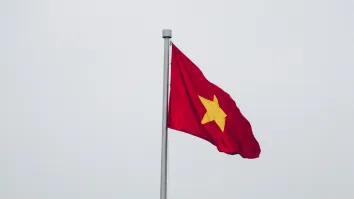
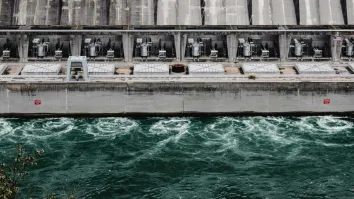

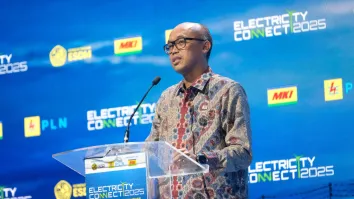



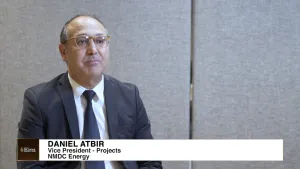





 Advertise
Advertise






